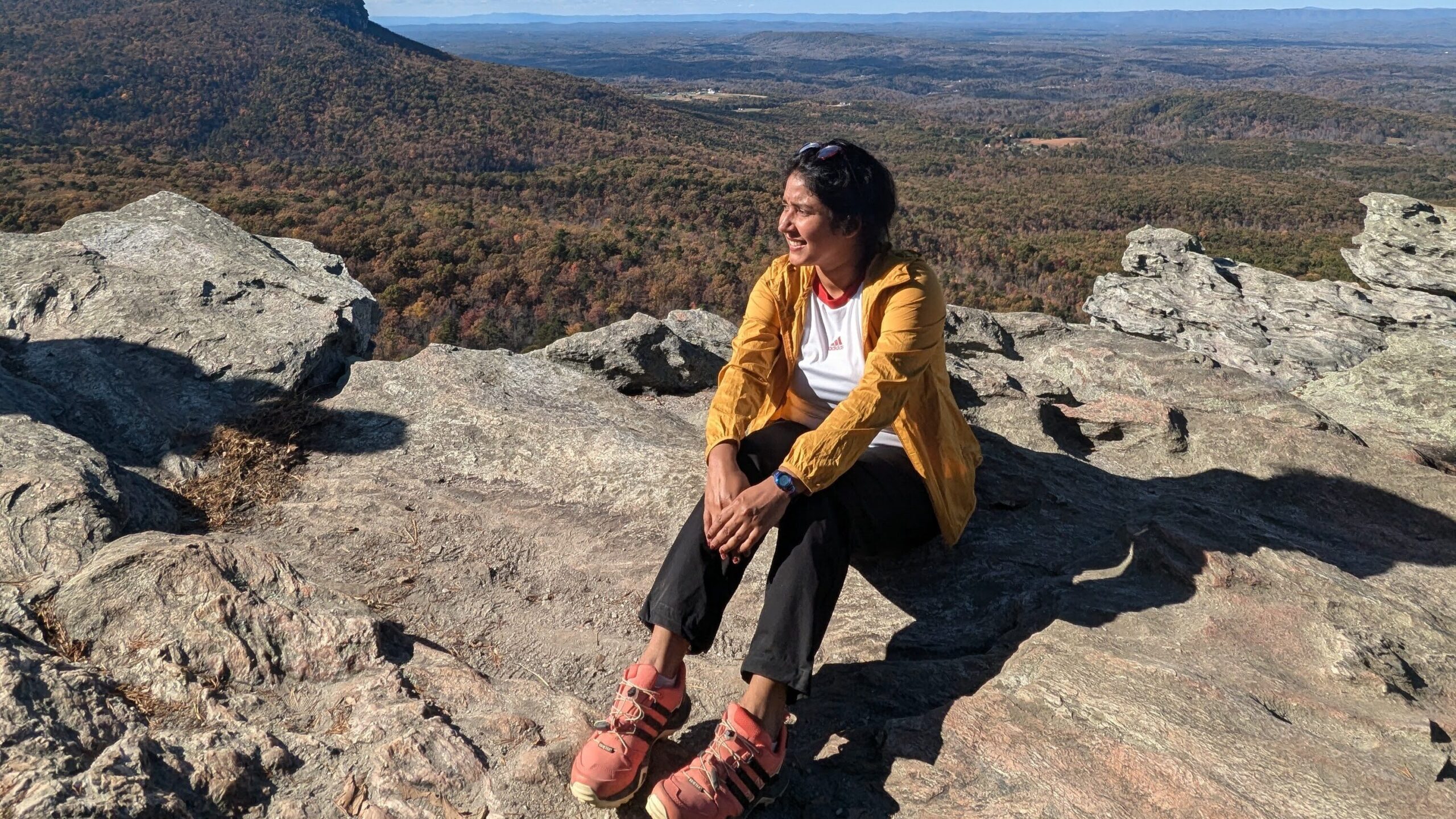GOHA Student Spotlight – Sumaiya Tazin
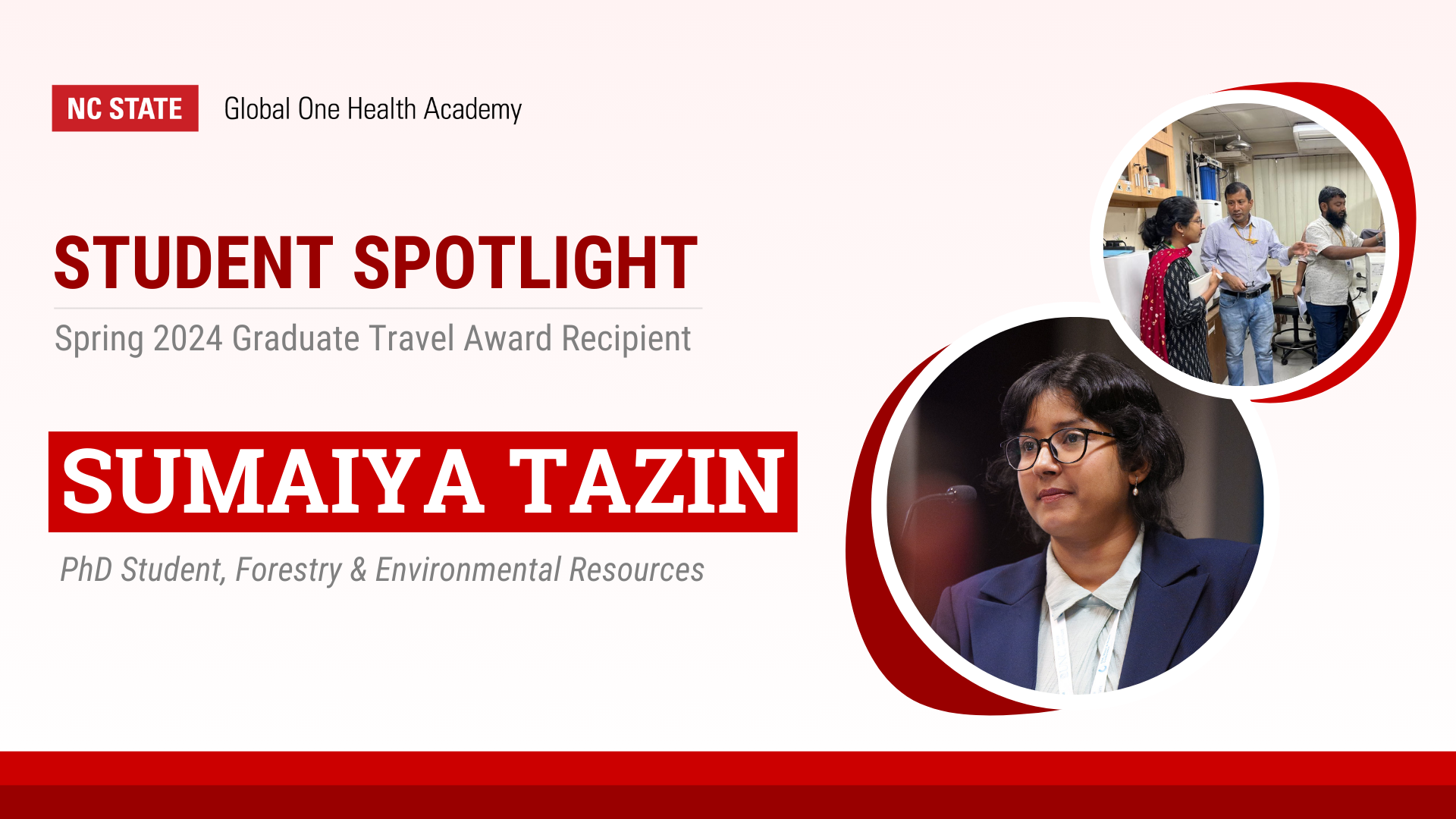
Offered twice a year, the Global One Health Academy Graduate Travel Awards support graduate students for international or domestic travel that advances their global One Health-related research. Sumaiya Tazin, Ph.D. student in Forestry and Environmental Resources, was a recipient of the Spring 2024 Graduate Travel Awards, where she traveled to Sirajganj, Bangladesh. Learn more about Tazin and how the Global One Health Academy has helped support her research endeavors through her featured spotlight below!
What do you study?
My Ph.D. research looks at how the environment affects infectious diseases in low-income areas. My research covers the following three areas: disease spread from animals to people, overlooked sources of germs in the environment, and antibiotic resistance in the One Health context where humans, animals, and the environment intersect.
I am originally from Bangladesh, but received my education elsewhere. I received my bachelor’s degree in engineering from the Indian Institute of Engineering Science and Technology, Shibpur in India, and I received my master’s degree in water resources engineering from Kyoto University in Japan. I developed a passion for health research while working on my final-year Civil Engineering thesis for which I designed a sanitary napkin vending machine for girls’ schools in India. For my master’s, I decided to focus on floods and climate change due to their growing importance. Now, in my Ph.D., I’m blending my experience in both human-centered and environmental research.
My journey to finding something I am truly passionate about has not been linear, but fortunately I have had inspiring mentors leading me to become a female STEM researcher from Bangladesh—a country facing major infectious disease challenges. My mentors encouraged me to take a multidisciplinary approach to solving these complex health issues, broadening both my knowledge and perspective.
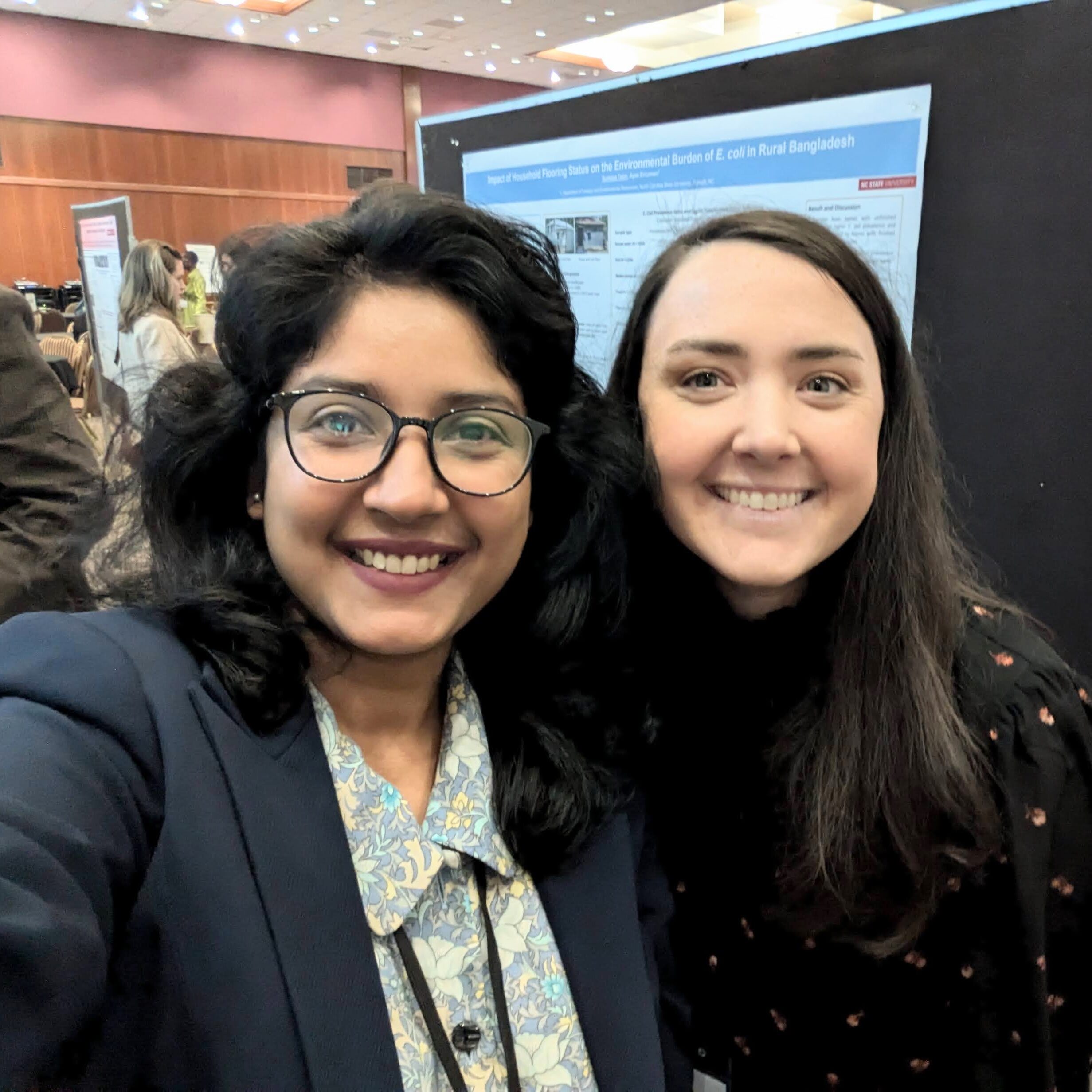
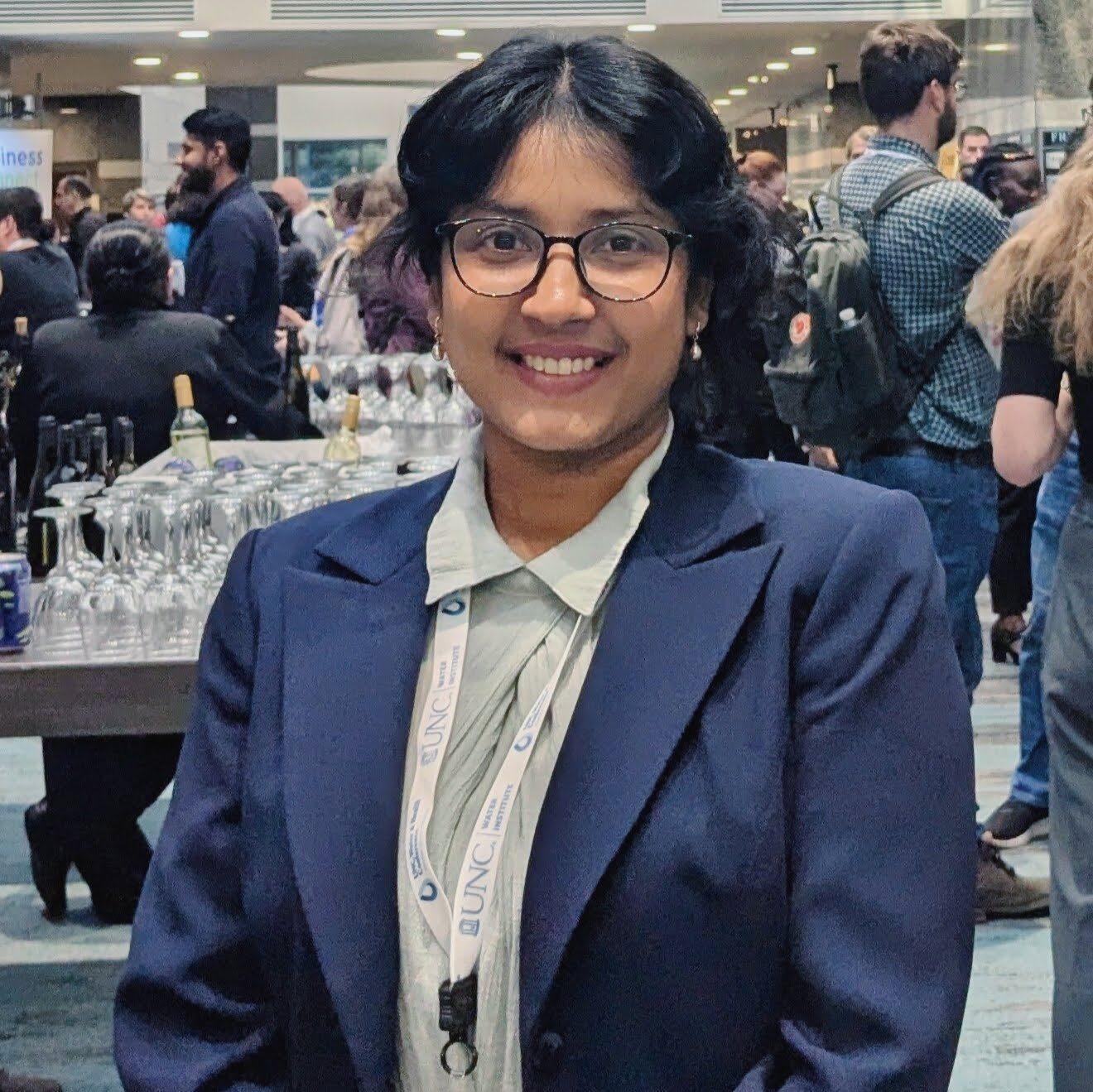
What are the implications of your research, and how does it fit into the One Health framework?
My research highlights the complexity of human-animal interactions and their role in environmental contamination and child health. It demonstrates that traditional WaSH (Water, Sanitation, and Hygiene) programs alone may not be enough to improve health outcomes if they do not account for disease transmission from animals to humans. By investigating how domestic animals contribute to environmental contamination and adverse child health effects, this study provides evidence to strengthen WaSH programs through a One Health approach. This means developing strategies that address the connections between human, animal, and environmental health to reduce disease risks more effectively.
A key strength of this research is its large sample size and broad applicability to other low- and middle-income countries (LMIC). It also takes a comprehensive approach by evaluating multiple health outcomes and environmental pathways, offering a holistic understanding of disease transmission. In the face of climate change and emerging infectious threats, such as recent bird flu cases in the U.S., it is crucial to balance the health of people, animals, and ecosystems. By integrating findings into the One Health framework, this research provides sustainable solutions to protect vulnerable populations and can serve as a model for addressing similar health challenges worldwide.
How did GOHA’s support help advance your One Health related research?
I have conducted important fieldwork in Bangladesh for my research, supported in 2024 with the GOHA travel award. This has allowed me to directly witness how research is done in the field, and particularly how a large randomized trial is conducted. I have presented my research at the NC State One Health Research Symposium and NC Global Health Alliance Conference, as well as at a prominent internationally attended conference in my field. GOHA’s support provided me a platform to share my work with fellows and scholars from diverse disciplines, fostering the exchange of ideas and sparking innovative research collaborations.
You traveled to Sirajganj, Bangladesh, with your GOHA Graduate Travel Award. What was the most surprising thing you experienced as part of this travel?
A lot of families in LMIC are dependent on animals like cows, goats, or chickens for food and income. My visit allowed me to see how humans interact with these animals in my study setting and how samples are collected and processed in a laboratory setting. I was surprised to learn that in some cases, cows are kept in the same room where family members, including children of that household sleep.
Has conducting work in an international setting changed your research perspectives?
Yes, conducting research in an international setting has significantly broadened my perspective. Working in LMIC has shown me the complex realities of disease transmission beyond what is typically captured in controlled studies. It helped me realize how environmental, socioeconomic, and cultural factors influence health outcomes, thus understanding the importance of interdisciplinary approaches like One Health to address these challenges effectively. It has also deepened my appreciation for context-specific solutions. What works in one setting may not be feasible in another due to differences in infrastructure, resource availability, and local practices. This has made me more focused on designing research that is not only scientifically rigorous but also practical and feasible.
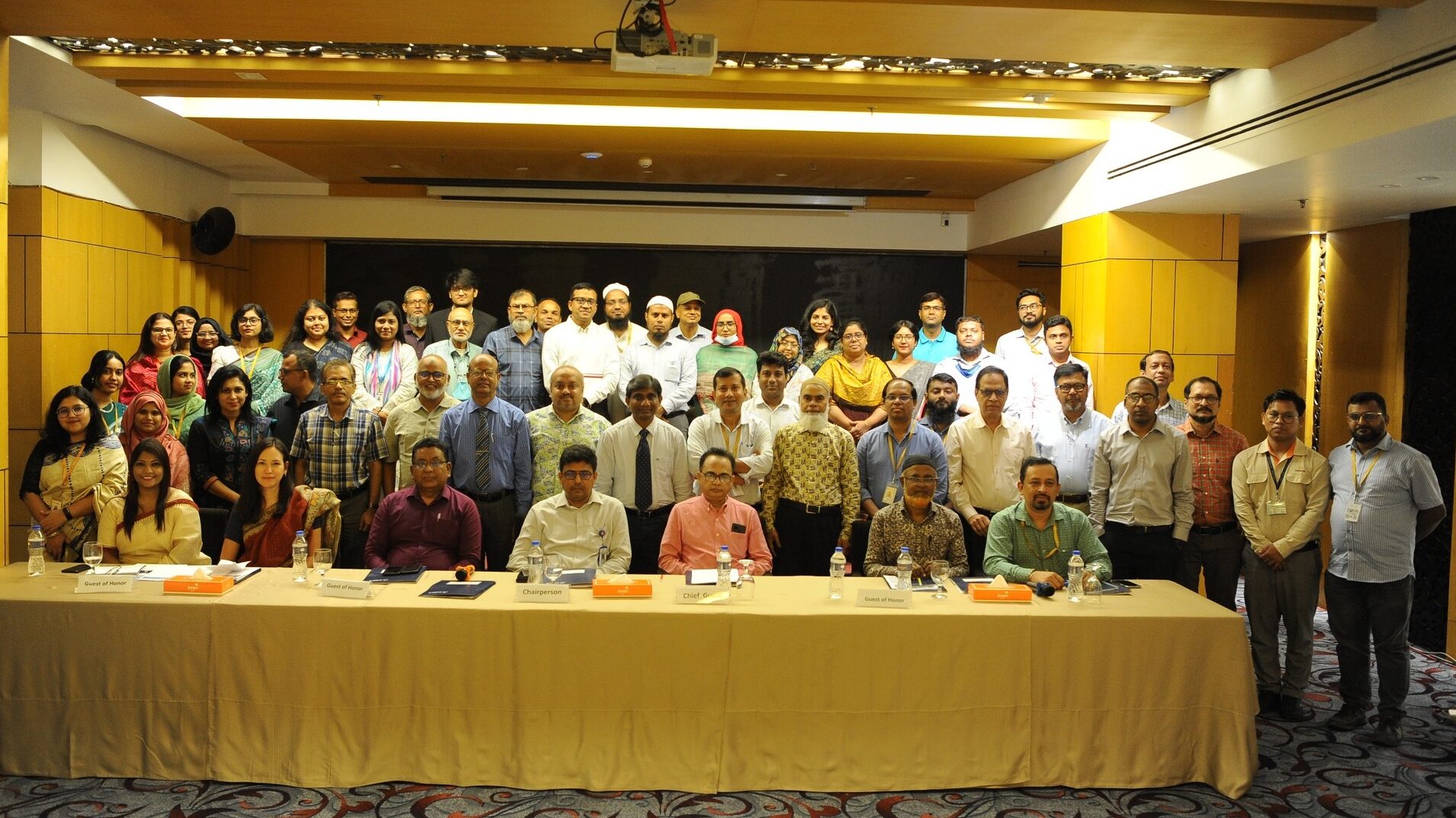
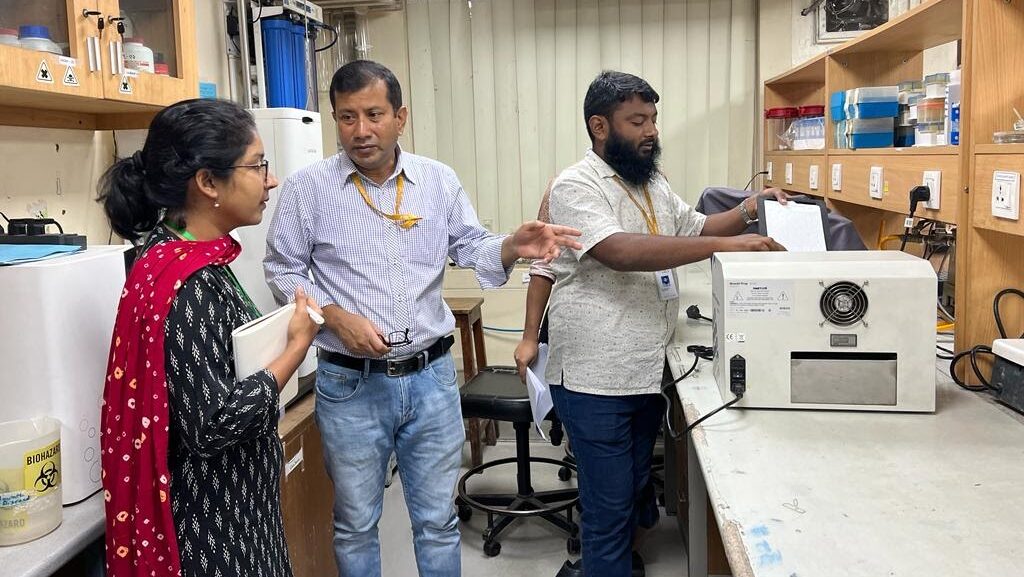
What are your future career plans? In what ways do you see your One Health experiences setting you up for success on this career path?
After my Ph.D., I plan to use my knowledge and skills to teach and mentor students as a faculty member at a university. The GOHA travel award has greatly shaped my journey toward becoming an independent researcher. Since shifting my focus to One Health, I have been able to study the connections between human, animal, and environmental health. Moreover, the collaborative nature of global One Health research has allowed me to build research partnerships across different fields and institutions. Working at the intersection of human, animal, and environmental health has helped me to develop skills in cross-disciplinary thinking, teamwork, and designing research that finds solutions to public health challenges in a comprehensive way.
Additionally, my global research experiences have prepared me to address emerging health threats in ways that are flexible and sustainable. This has made me well-suited for roles in academia, public health organizations, and policy-making institutions that focus on integrated, system-based solutions.
Is there anything else you would like to share?
In my free time, I like to hike, watch movies, take care of my houseplants, and journal. I also like reading and researching about almost anything and everything! (Current interest: thru-hiking and backpacking)

